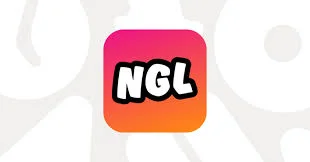A Landmark Decision for Online Safety
In a historic move, federal regulators have taken unprecedented action by banning the messaging app NGL from serving users under 18. This decision stems from allegations that the app overhyped its anti-bullying capabilities and engaged in aggressive and misleading marketing tactics targeting children and teens.
NGL’s Aggressive Marketing and Dubious Practices

NGL, short for “not gonna lie,” gained immense popularity among children and teens, reaching over 200 million users. The platform allowed users to send anonymous messages and play interactive games, which quickly made it a hit among young users. However, the Federal Trade Commission (FTC) and the Los Angeles District Attorney’s Office accused the app of exploiting its young user base.
The complaint revealed that NGL sent computer-generated messages to users, tricking them into paying for subscriptions under the pretense that the messages were from real people. These subscriptions, which cost up to $9.99 a week, promised to reveal the identities of message senders, but only provided vague hints, whether accurate or not.
A Deceptive Business Model Unveiled
When users complained about these misleading tactics, NGL executives allegedly dismissed their concerns, referring to the users as “suckers.” The FTC stated that NGL’s practices not only misled users but also violated children’s privacy laws by collecting data from children under 13 without parental consent.
The Settlement: A Major Victory for Child Safety Advocates
In response to these allegations, NGL agreed to a $5 million settlement and committed to stop marketing to minors. This settlement is seen as a significant milestone in the federal government’s efforts to protect children from harmful online practices. It also marks one of the most impactful actions by the FTC under Chair Lina Khan, who has intensified scrutiny of the tech sector since her appointment in 2021.
“We will keep cracking down on businesses that unlawfully exploit kids for profit,” Khan stated.
Industry Reactions and Future Implications
NGL co-founder Joao Figueiredo commented that the company had cooperated with the FTC’s investigation and viewed the resolution as an opportunity for improvement. Despite disputing some allegations about their young user base, Figueiredo expressed hope that the agreed-upon age-gating measures would set a precedent for others in the industry.
The Broader Impact on Anonymous Messaging Apps
NGL is not the first anonymous messaging app to face scrutiny. Child safety advocates have long raised alarms about the potential for cyberbullying and other harmful activities on such platforms. In fact, the FTC’s case was bolstered by advocacy groups like Fairplay and activists like Kristin Bride, who tragically lost her son to cyberbullying linked to anonymous apps.
Bride’s son, Carson, died by suicide after being harassed on anonymous messaging services. Bride has since become a vocal critic of these platforms, highlighting the dangers they pose to vulnerable teens.
Regulatory Landscape: A Step Towards Safer Online Spaces for Kids
This settlement is part of a broader trend of regulatory actions aimed at protecting children online. Last year, the FTC reached a record $520 million settlement with Epic Games over similar issues related to children’s data privacy. The agency is also pushing for more stringent regulations under the Children’s Online Privacy Protection Act (COPPA) to further safeguard young users.
Additionally, the FTC has proposed measures to restrict Facebook and Instagram from monetizing data from users under 18. While these proposals face legal challenges, they signify a growing commitment to addressing the unique risks children face in the digital age.
Conclusion: A New Era of Accountability for Tech Platforms
The FTC’s decision to ban NGL from hosting minors represents a pivotal moment in the fight to protect children from exploitative digital practices. It sends a clear message that tech companies will be held accountable for their actions, especially when the safety and well-being of young users are at stake. As regulators continue to crack down on deceptive and harmful practices, we can hope for a safer and more responsible digital environment for future generations.
More News: Tech News


